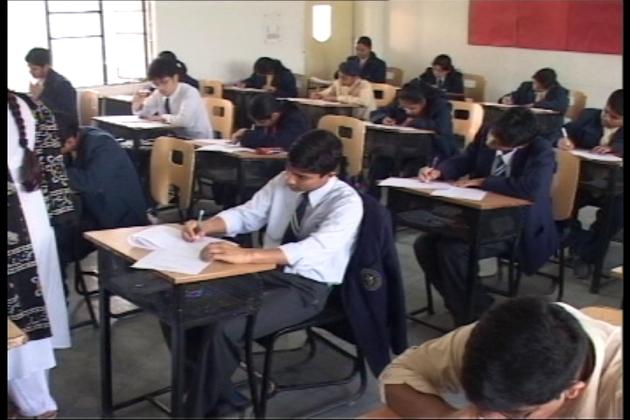
Hyderabad, July 9: They may have handed over blank papers but they have still qualified for admission into professional degree courses in Andhra Pradesh. Unbelievable but true, say officials.
Twenty-two of 78 students who scored zero in the entrance test this year will get admission in engineering and agriculture courses as they belong to Scheduled Caste (SC) or Scheduled Tribe (ST) communities.
According to officials in the education department, despite scoring zero in EAMCET (Engineering, Agriculture and Medical Common Entrance Test), these students have qualified as they got the minimum 40 percent marks in the qualifying Class 12 exam.
While nine students will get admission into engineering colleges, 13 can pursue other courses except MBBS. Even this was possible till 2008 when the Medical Council of India (MCI) tightened the norms.
The Dalit/tribal students who qualified despite scoring zero in the medical stream in EAMCET can get admissions into agriculture, veterinary and horticulture courses.
The Jawaharlal Nehru Technological University (JNTU), Hyderabad, conducts EAMCET every year for admission into engineering, medical, dental and agriculture courses both in government and private colleges in the state. The results of EAMCET 2012 were announced last week.
Of 90,917 students who wrote EAMCET in the medicine stream, 83,686 qualified.
For the general category students, the competition will be tough with only 4,950 seats available in 37 medical colleges and 1,870 seats in 21 dental colleges.
Andhra Pradesh has the highest number of engineering colleges (671) in the country.
Of 283,477 students who wrote engineering entrance, 223,886 have qualified. This number has come down to about 200,000 as many students did not pass the XII exam.
This means over 100,000 engineering seats would still go vacant in the academic year 2012-13. The state has 321,000 engineering seats.
Academics say the number of vacant seats in engineering colleges would be even higher as the top rankers will opt for the Indian Institute of Technology.
Till 2010, passing the Class 12 exam was enough to get admission into engineering college even if the students score zero in EAMCET.
Last year, the All India Council for Technical Education (AICTE) prescribed a cut off percentage of 50 in 12 Class for general category and 40 percent for the reserved quota students.
The total marks in EAMCET are 160, and for the general category and the qualifying marks are 25 percent of the total.
Governor ESL Narasimhan, who is the chancellor of all universities in the state, is unhappy over the state of affairs.
Addressing JNTU Hyderabad convocation in May, he disapproved of the trend of giving admissions to students who don't score a single mark in EAMCET.
"There should be some minimum qualifying marks. What do you expect of such students, who score zero, to do in classrooms? Do you want to develop an inferiority complex among such students?" he asked.
Last year, 26 out of 73 students who got zero marks in EAMCET were declared qualified. Of them, 17 got admissions into engineering and nine in agriculture/veterinary colleges.





Comments
Add new comment